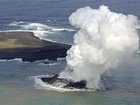The surface of the sun has been surprisingly calm of late -- with fewer sunspots than anytime in in the last century -- prompting curious scientists to wonder just what it might mean here on Earth.
Sunspots have been observed for millennia -- first by Chinese astronomers and then, for the first time with a telescope, by Galileo in 1610.
 Full Story
Full Story
After another U.N. climate conference gave only modest results, European Climate Commissioner Connie Hedegaard says the process needs to provide a "substantial answer" to global warming in two years to remain relevant.
Even if it succeeds, it's worth reconsidering whether the international confabs need to be held every year, and whether the scope of each session should be narrower, Hedegaard told The Associated Press on Sunday.
 Full Story
Full Story
U.N. negotiators agreed in overtime talks Saturday on cornerstone issues of an ambitious, global climate pact to be signed in 2015 to stave off dangerous Earth warming.
A day after negotiations threatened to collapse, delegates adopted a modified text in Warsaw that both developed and developing countries said they could live with.
 Full Story
Full Story
A Japanese utility plans to construct two cutting-edge coal power plants in Fukushima, an area severely hit by the 2011 nuclear disaster, a report said Saturday.
Tokyo Electric Power Co (TEPCO), the cash-strapped operator of the crippled Fukushima Daiichi nuclear plant, and three Mitsubishi group companies are seeking to open the new facilities as early as 2020, the leading Nikkei business daily said.
 Full Story
Full Story
Palaeontologists on Friday announced they had uncovered the remains of one of the greatest land predators ever -- a nine-meter (30-foot) four-tonne dinosaur that stalked the planet 100 million years ago.
The newly-discovered species has been called Siats meekerorum, whose first name honors a cannibalistic monster in the mythology of the Native American Ute people.
 Full Story
Full Story
Ghostly sub-atomic particles called neutrinos in outer space have been glimpsed from an icy observatory in Antarctica, offering a rare new view of the universe, scientists said Thursday.
These high-energy particles are everywhere, and billions pass though our bodies every second, according to Kara Hoffman, a physics professor at the university of Maryland, a co-author of the study in the journal Science.
 Full Story
Full Story
A nanosatellite owned by Argentina is now in orbit after being launched from a Russian platform.
Argentina's technology ministry said it was launched Friday at 4:30 a.m. (730 GMT) and has already orbited around the Earth five times.
 Full Story
Full Story
Astronomers call it the monster. It was the biggest and brightest cosmic explosion ever witnessed. Had it been closer, Earth would have been toast.
Orbiting telescopes got the fireworks show of a lifetime last spring when they spotted what is known as a gamma ray burst in a far-off galaxy.
 Full Story
Full Story
A volcanic eruption has raised an island in the seas to the far south of Tokyo, the Japanese coast guard and earthquake experts said.
Advisories from the coast guard and the Japan Meteorological Agency said the islet is about 200 meters (660 feet) in diameter. It is just off the coast of Nishinoshima, a small, uninhabited island in the Ogasawara chain, which is also known as the Bonin Islands.
 Full Story
Full Story
A meteorite found in the Sahara last year by Bedouin tribesmen is a rock from Mars, revealing that the Red Planet's crust formed 4.4 billion years ago, scientists reported on Wednesday.
Sold to the elite club of meteorite collectors, the extraordinary rock has been analysed by U.S. and French geologists.
 Full Story
Full Story



